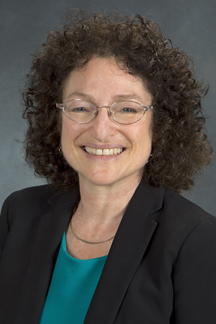Diane Morse Named Associate Director of the Office of Health Equity Research
 Diane Morse, MD, has been named associate director of the Office of Health Equity Research (OHER), now part of the Center for Community Health & Prevention at the University of Rochester Medical Center (URMC). Morse is an internal medicine physician and associate professor of Psychiatry and Internal Medicine at the URMC. An avid researcher with particular interest in the health care needs of individuals in the criminal legal system, domestic violence, and health equity, she also leads the WISH-TC (Wellness Initiative Supporting Health Transitions) clinic at Jordan Health.
Diane Morse, MD, has been named associate director of the Office of Health Equity Research (OHER), now part of the Center for Community Health & Prevention at the University of Rochester Medical Center (URMC). Morse is an internal medicine physician and associate professor of Psychiatry and Internal Medicine at the URMC. An avid researcher with particular interest in the health care needs of individuals in the criminal legal system, domestic violence, and health equity, she also leads the WISH-TC (Wellness Initiative Supporting Health Transitions) clinic at Jordan Health.
“Dr. Morse’s high level of engagement in the Office of Health Equity Research and impressive record of grant funding and community engagement, were a few of the many reasons she is a great fit for the role of associate director,” shared Edith Williams, PhD, MS, director of the Center for Community Health & Prevention and founding director of OHER. “Dr. Morse has been an active participant in all meetings, has had meaningful contributions to discussions and considerations related to research development, and has demonstrated support of various OHER initiatives.”
Morse has been part of the Office of Health Equity Research for close to a year and, in this new role, looks forward to helping people across the University of Rochester learn more about health equity and community-engaged research.
“I hope to increase trust in our community about research,” shared Morse. “The role of research should be to advance the population and we need the trust and input from our communities in order to be able to do that successfully.”
The Office of Health Equity Research aims to go beyond documenting health inequities to develop and effectively disseminate interventions that ensure better health is accessible for all. The office supports and synergizes research and training to improve the health of the most vulnerable residents of Rochester and beyond. OHER is focused on prioritizing research that addresses the most pressing community needs, as determined by the community. The top five priority health issues and inequities include housing, mental health and substance use, violence, chronic disease and incarceration.
An advocate for the health of the underserved, Morse’s WISH-TC clinic addresses the health care needs of criminal legal system-involved individuals in Rochester, facilitating treatment access for them as they re-enter their communities. Strategies include support and navigation assistance from community health workers with lived experience of incarceration. Support is rooted in Self-Determination Theory (SDT), a theory of motivation that empowers patients in their care. According to SDT, all of us have three key psychological needs – Autonomy, Relatedness, and Competence. SDT was a large focus of the work Morse pursued as a University of Rochester Fulbright Scholar at the Hebrew University of Jerusalem in 2008, and continues to be woven throughout her research and practice. This approach also serves as the foundation of care at the Center for Community Health & Prevention’s clinic.
Morse is actively involved with the Transitions Clinic Network (TCN), a national organization “committed to reversing the harms of mass incarceration by eliminating racism and economic disparities.” According to its website, TCN’s innovative approach addresses underlying inequities of race and place, leading to better health and criminal-legal outcomes for patients.
In addition, Morse spends a great deal of her time teaching and mentoring, from undergraduate and graduate students to medical and nursing students. Passionate about working with those who have lived experience, Morse started a Health and Incarceration Pathway experience where medical students deliver health education to incarcerated individuals in local jails and conduct community-based research and advocacy. She is also working with medical students to run a free clinic for reentering individuals at the local Reentry Association of Western NY.
“I like to work in teams with the consideration of community and equity – meeting people where they are,” said Morse. “I like to approach it all with a strength-based perspective. What’s working well, but how can we make it even better?”